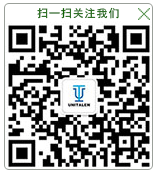Invalidation Case of Trademark No. 16038591 for "伍連德醫(yī)療 and the Device"
December 18, 2023Case Brief
The petitioner: HUANG Jiankun
The respondent: WU LIEN-TEH International Medical Management Center, LLC
The main reasons of the petitioner: WU Lien-teh is the founder of China's epidemic prevention and quarantine undertaking, and the pioneer of China's modern medicine, epidemiology and other fields, and was the first president of the Chinese Medical Association. The registration of the disputed trademark violates the principle of honesty and credibility, is liable to cause confusion among the relevant public about the source of the services, etc., and has negative and adverse effects on China's public interests and public order, infringing the prior name right of WU Lien-teh.
After trial, the Trademark Office held that the evidence submitted by the petitioner showed that Mr. WU enjoys a very high reputation in the epidemic prevention and quarantine business as well as the fields such as modern medicine, microbiology, epidemiology, medical education and history of medicine in China, and that the disputed trademark, whose distinctively recognized portion is the characters "伍連德", when used on the approved services, is liable to make the public think that it has certain association with Mr. WU, and thus would cause confusion on the source and other characteristics of the services. The registration of the disputed trademark pertains to the circumstance as specified in Article 10.1(7) of the Trademark Law, and therefore the disputed trademark was declared invalid.
Typical Significance
Celebrities have relatively high influence and brand value, and there are many cases of taking advantage of famous people to seek illegitimate commercial interests in the practice of trademark examination and trial. The disputed trademark fully contains the name of China's modern medical pioneer, and the intention of using the reputation and influence thereof to unlawfully obtain competitive advantage in market is obvious. In order to safeguard public order and good custom and maintain the market order of fair competition, the provision of Article 10.1(7) of the Trademark Law is applied in this case to combat the act of free-ride, which has certain reference significance for similar cases. (LONG Xia)
(Case Source: website of the Trademark Office of CNIPA)




